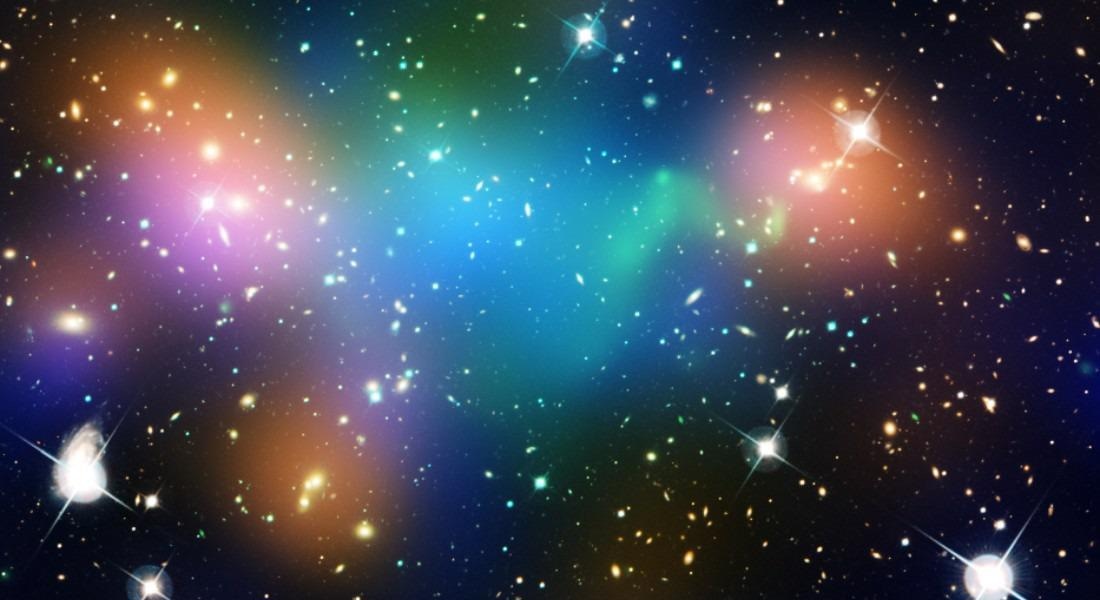Apr 1 2021
Scientists have believed for a long time that dark energy makes up almost 70% of the ever-growing, accelerating universe, until now.
 Photo of dark matter, which is invisible to the eye, but here illustrated with a blue color. Image Credit: NASA/ESA.
Photo of dark matter, which is invisible to the eye, but here illustrated with a blue color. Image Credit: NASA/ESA.
For several years, this kind of mechanism has been correlated with the supposed cosmological constant, designed by Albert Einstein back in 1917, that denotes an unfamiliar repellent cosmic power.
But since it is not possible to directly quantify this cosmological constant, called dark energy, many scientists, including Einstein, have questioned its existence—without being able to propose a practical alternative, until now.
In a recent study performed at the University of Copenhagen (UCPH), researchers have tested a new model in which dark energy is substituted with dark matter in the form of magnetic forces.
If what we discovered is accurate, it would upend our belief that what we thought made up 70 percent of the universe does not actually exist. We have removed dark energy from the equation and added in a few more properties for dark matter. This appears to have the same effect upon the universe’s expansion as dark energy.
Steen Harle Hansen, Associate Professor, DARK Cosmology Centre, Niels Bohr Institute
The Universe Expands no Differently Without Dark Energy
The general understanding of how the energy of the universe is distributed in space is that it contains 70% dark energy, 25% dark matter and 5% normal matter.
In the new model developed by the UCPH team, the 25% share of dark matter is conferred unique qualities that constitute 70% of the redundant dark energy.
We don’t know much about dark matter other than that it is a heavy and slow particle. But then we wondered—what if dark matter had some quality that was analogous to magnetism in it?
Steen Harle Hansen, Associate Professor, DARK Cosmology Centre, Niels Bohr Institute
“We know that as normal particles move around, they create magnetism. And, magnets attract or repel other magnets—so what if that’s what’s going on in the universe? That this constant expansion of dark matter is occurring thanks to some sort of magnetic force?” asked Hansen.
Computer Model Tests Dark Matter with a Type of Magnetic Energy
Hansen’s query acted as a basis for the novel computer model in which the investigators included everything that they learned about the universe—such as the speed of the universe expansion, gravity and X, the unfamiliar force that extends the universe.
We developed a model that worked from the assumption that dark matter particles have a type of magnetic force and investigated what effect this force would have on the universe. It turns out that it would have exactly the same effect on the speed of the university’s expansion as we know from dark energy.
Steen Harle Hansen, Associate Professor, DARK Cosmology Centre, Niels Bohr Institute
But the researchers need to understand more about this mechanism. And all these need to be validated in more improved models that consider more factors.
Hansen added, “Honestly, our discovery may just be a coincidence. But if it isn’t, it is truly incredible. It would change our understanding of the universe’s composition and why it is expanding. As far as our current knowledge, our ideas about dark matter with a type of magnetic force and the idea about dark energy are equally wild.”
“Only more detailed observations will determine which of these models is the more realistic. So, it will be incredibly exciting to retest our result.” Hansen concluded.